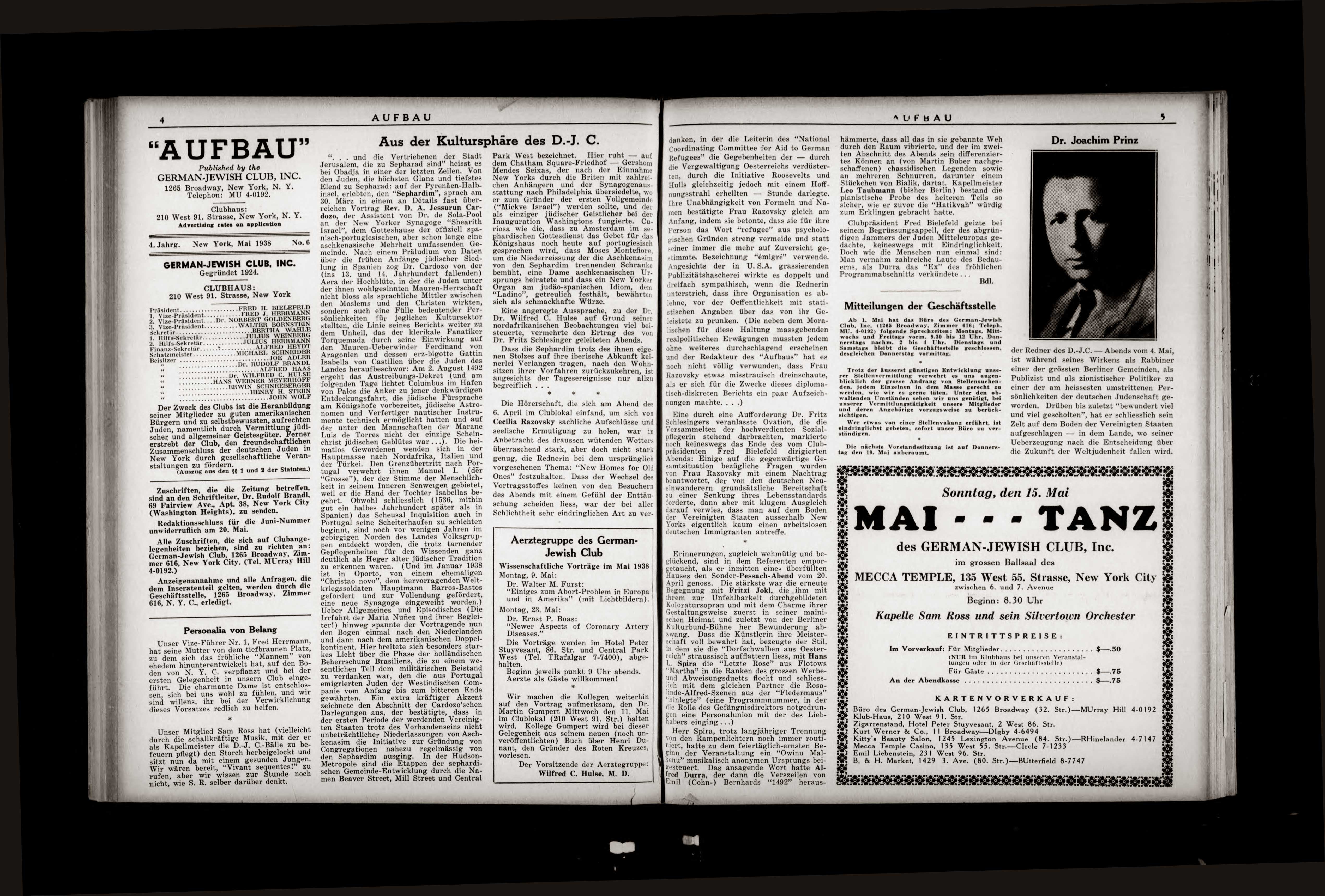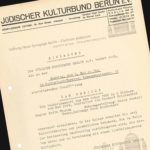Abortion and politics
German-Jewish Club organizes lecture with physician from Germany

-

New York
On May 9, the Ärztegruppe of the German-Jewish Club (an informal association of physicians within the city’s main German émigré organization) in New York offered a lecture on the topic of abortion. During the Weimar Republic, repeated efforts had been made to abolish or at least reform the anti-abortion paragraph (§218). Its opponents pointed out that it put the working class at a disadvantage, since poverty was the chief motivation for abortion. In 1926, a member of the Reichstag representing a coalition of three right-wing parties, including the NSDAP, proposed legalizing abortion for Jews only. Under the Nazi regime, which promoted the production of “racially valuable” offspring, abortion was illegal unless it prevented the birth of children considered “undesirable.” In the US, the depression had led to an increased demand for abortion, and by the beginning of the 1930s hundreds of birth control clinics had sprung up. Poverty and the lack of access to qualified practitioners often led to the injury or death of pregnant women through self-induced miscarriage. The lecturer, Dr. Walter M. Fürst, was a recent arrival from Hamburg.
SOURCE
Institution:
Leo Baeck Institute – New York | Berlin

Collection:
„Ärztegruppe der German-Jewish Club“, Aufbau, Vol. 4, Nr. 6, S. 4.













































